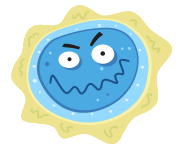
Viruses are among the smallest microbes on earth, even smaller than bacteria. They are different to bacteria because they cannot survive on their own. Viruses need to be inside a living cell (a host) to live and grow. Viruses are like photocopiers, they can make lots of copies of themselves once they are inside a host.
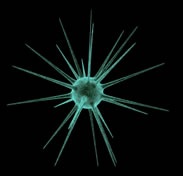
Viruses are very simple microbes, they can't do much by themselves. Viruses need a host, another living organism that gives them everything they need to work. Viruses take any chance they can to find a host. They get inside the host's cells and take it over. Viruses use the host cell's machinery to make lots of copies, so many that the cell bursts and infects other cells around it! They can make more viruses very quickly - just one virus can turn into lots of viruses and make you sick!
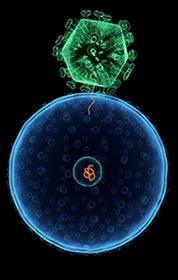
There aren’t very many good things about viruses – they usually attack your body and make you sick! One virus that did make a huge difference though was the cowpox virus. It was because of the cowpox virus that you can be vaccinated against lots of nasty diseases today! Viruses have very clever ways of attacking all types of cells, including bacteria. Scientists are trying to find ways of using these viruses to kill bacteria, instead of antibiotics.
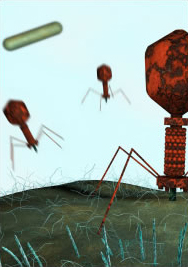
Viruses can make you and the people around you very sick. They cause lots of different diseases, from cold sores and warts to measles, colds and flu! They can be very contagious - they spread very quickly from one person to another. They can even spread in the air, in droplets that form when people cough or sneeze or from surfaces like door handles and telephones! There are very few medicines for viruses, antibiotics don’t work on viruses so there is no point taking them!
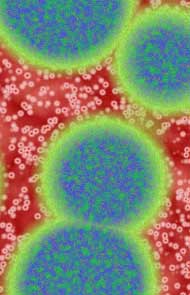
| Bacteria | Viruses | Fungi | Parasites |